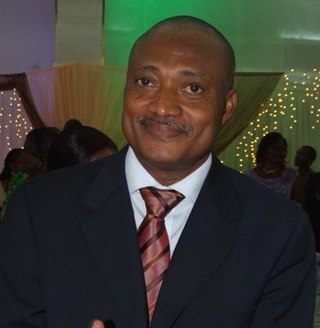
Togo, officially the Togolese Republic, is a country in West Africa. It is bordered by Ghana to the west, Benin to the east and Burkina Faso to the north. It is one of the least developed countries and extends south to the Gulf of Guinea, where its capital, Lomé, is located. It is a small, tropical country, which covers 57,000 square kilometres and has a population of approximately 8 million, and has a width of less than 115 km (71 mi) between Ghana and its eastern neighbor Benin.
The history of Togo can be traced to archaeological finds which indicate that ancient local tribes were able to produce pottery and process tin. During the period from the 11th century to the 16th century, the Ewé, the Mina, the Gun, and various other tribes entered the region. Most of them settled in coastal areas. The Portuguese arrived in the late 15th century, followed by other European powers. Until the 19th century, the coastal region was a major slave trade centre, earning Togo and the surrounding region the name "The Slave Coast".

Gnassingbé Eyadéma was a Togolese military officer and politician who was the president of Togo from 1967 until his death in 2005, after which he was immediately succeeded by his son, Faure Gnassingbé.

Elections in Togo take place within the framework of a presidential system. Both the President and the National Assembly are directly elected by voters. Togo is a one party dominant state with the Union for the Republic in power.

Faure Essozimna Gnassingbé Eyadéma is a Togolese politician who has been the president of Togo since 2005. Before assuming the presidency, he was appointed by his father, President Gnassingbé Eyadéma, as Minister of Equipment, Mines, Posts, and Telecommunications, serving from 2003 to 2005.

Édouard Kodjovi "Edem" Kodjo, was a Togolese politician and diplomat. He was Secretary-General of the Organisation of African Unity from 1978 to 1983; later, in Togo, he was a prominent opposition leader after the introduction of multi-party politics. He served as Prime Minister from 1994 to 1996 and again from 2005 to 2006. Kodjo was President of the Patriotic Pan-African Convergence (CPP). Kodjo died on April 11, 2020, in Paris.

Juvento, also known as the Mouvement de Jeunesse Togolaise, is a social democratic political party in Togo.

Nicolas Grunitzky was the second president of Togo and its third head of state. He was President from 1963 to 1967. Grunitzky was Prime Minister of Togo from 1956 to 1958 under the French Colonial loi cadre system, which created a limited "national" government in their colonial possessions. He was elected Prime Minister of Togo —still under French administration— in 1956. Following the 1963 coup which killed his nationalist political rival and brother-in-law Sylvanus Olympio, Grunitzky was chosen by the military committee of coup leaders to be Togo's second President.
Gilchrist Olympio is a Togolese politician who was a long-time opponent of the regime of Gnassingbé Eyadéma and was President of the Union of Forces for Change (UFC), Togo's main opposition party from the 1990s til 2013. Olympio is the son of Sylvanus Olympio, Togo's first President, who was assassinated in a 1963 coup. He is now an ally of the current regime of Faure Gnassingbe, the son of the late President.

The Action Committee for Renewal is an opposition political party in Togo. Dodji Apévon has led the party since 2008; previously it was led by Yawovi Agboyibo from 1991 to 2008.
Yawovi Madji Agboyibo was a Togolese attorney and politician. He served as Prime Minister of Togo from September 2006 to December 2007 and was National President of the Action Committee for Renewal (CAR), an opposition political party, from 1991 to 2008. He was the Honorary President of the CAR.

Parliamentary elections were held in Togo on October 14, 2007 for the 81 seats in the National Assembly. There were over 2,000 candidates, with 32 parties and 41 lists of independent candidates competing. The ruling Rally of the Togolese People (RPT) was victorious, winning a majority of 50 seats. The remaining seats were won by opposition parties; the Union of the Forces of Change (UFC) won 27 seats and the Action Committee for Renewal (CAR) won four seats. They were the first parliamentary elections since the beginning of multiparty politics in the early 1990s in which all major parties participated.
Maurice Dahuku Péré was a Togolese politician who was President of the National Assembly of Togo from 1994 to 1999. He was the national president of the Democratic Alliance for the Fatherland, an opposition party.
Dama Dramani is a Togolese politician who was the President of the National Assembly of Togo from 2013 to 2018. He was Secretary-General of the Rally of the Togolese People (RPT), the ruling party, from 2003 to 2006, and following the 2007 parliamentary election he was President of the RPT Parliamentary Group in the National Assembly.
Issifou Okoulou-Kantchati was a Togolese politician, who last served in the government of Togo as Minister of City Planning and Housing.

Jean-Pierre Fabre is a Togolese politician and the President of Togo's main opposition party, the National Alliance for Change. He served for

The Togolese Party of Progress was a political party in Togo.

The Togolese People's Movement was a political party in Togo between 1954 and 1967.

The Democratic Union of the Togolese People was a political party in Togo.







